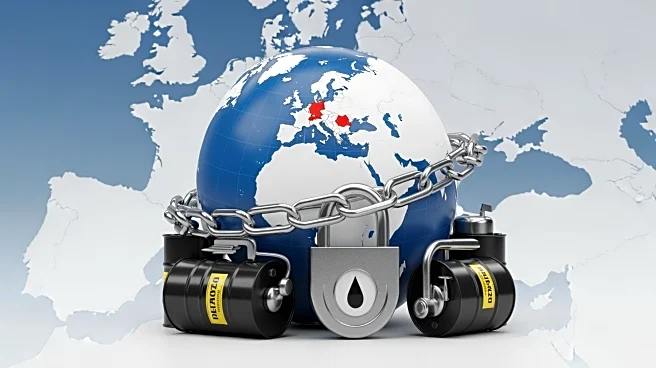What's Happening?
The European Parliament has approved a proposal to ban imports of Russian oil and gas starting January 1, 2026. The decision, supported by the energy committee, includes exceptions for existing contracts, allowing short-term contracts until June 2026 and long-term
contracts until January 2027. The legislation aims to reduce dependency on Russian fossil fuels and includes measures to prevent circumvention, such as requiring detailed evidence of the gas's origin. The proposal also mandates prior customs authorization for Russian oil imports and introduces penalties for non-compliance.
Why It's Important?
This ban represents a significant shift in European energy policy, aiming to reduce reliance on Russian energy sources amid geopolitical tensions. It could have substantial economic implications for both the EU and Russia, potentially affecting global energy markets. The decision underscores the EU's commitment to energy security and diversification, which may lead to increased investment in alternative energy sources. The move could also influence U.S. energy policy and international relations, as the U.S. may need to adjust its strategies in response to changing European energy dynamics.
What's Next?
The European Parliament will inform its plenary chamber of the decision in an upcoming session, and negotiations with the Council will follow. The implementation of the ban will require careful monitoring to ensure compliance and address any potential loopholes. The EU may also need to accelerate its transition to renewable energy sources to compensate for the loss of Russian imports. The decision could prompt other countries to reconsider their energy dependencies and explore new partnerships.
Beyond the Headlines
The ban highlights the ethical and environmental considerations of energy consumption, as the EU seeks to balance energy security with sustainability goals. It also raises questions about the geopolitical implications of energy policies and the role of international cooperation in addressing global energy challenges.















